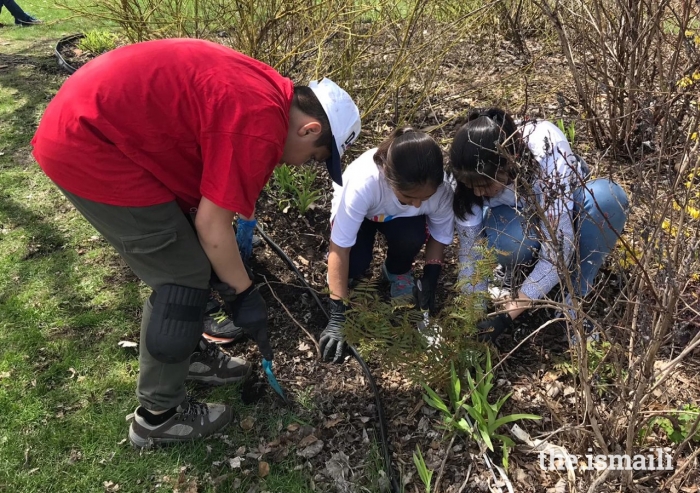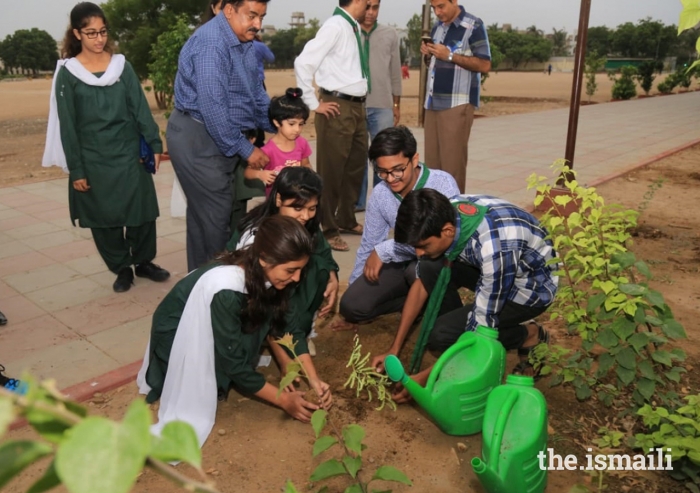 Puffins breed in large colonies on coastal cliffs and islands. Together with other seabirds, they are threatened by habitat destruction due to climate change and pollution. Chris Goldberg
Puffins breed in large colonies on coastal cliffs and islands. Together with other seabirds, they are threatened by habitat destruction due to climate change and pollution. Chris GoldbergEach year, thousands of sea birds and marine mammals in the United States die as a result of being strangled in plastic. The Food and Agriculture Organization of the United Nations estimates that during the past decade, some 13 million hectares of forests were lost annually around the world. And according to worldometers.info – a website that aggregates statistics based on data from various international and government organisations – approximately 310 kilograms of toxic chemicals are released into our environment by industrial facilities globally every second.
These are alarming statistics, and while most individuals agree with the basic goals of environmental preservation, it is surprising how little is being done about it. Author Crissy Trask brings up an interesting question in her book,
It's Easy Being Green: Why does there seem to be such a great divide between environmental sentiment and individual actions? She found that for most people, the lack of effort is due to “a busy lifestyle, a lack of knowledge and a lack of guidance on what to do and how to do it.”
But a group of proactive Ismaili Muslims are applying their innovative prowess to counter the spectre of climate change and ecological devastation. Inspired by Islam's ethic of caring for the environment, they are doing their part to preserve and safeguard nature's precious resources in order to sustain social and economic development.
Alim Khamisa, a graduate student at the University of Waterloo, became interested in “green” technology when he was an undergraduate student at Carleton University.
“I was working on a project that entailed using a particular enzyme to degrade plastic waste in a bioreactor,” he said. Spotting opportunity Khamisa drew up a business plan with partner Leopoldo Herrera. The two won Carleton's 2009 Environmental Innovation Challenge for their proposal to commercialise the science in the fight against plastic waste. Part of the $1,000 prize included a $500 donation to a charitable organisation of the winners' choice. The pair elected to donate the money to the Aga Khan Development Network.
Khamisa's efforts did not end there. While pursuing his masters, he entered a competition at the Richard Ivey School of Business, with a a smart phone application project to “green up” large conferences by reducing the amount of paper used for conference booklets and brochures. His project advanced to the semi-finals and was later adopted by Meeto Technologies Inc, whose software enables organisers to mobilise their event-related content.
 Khamisa's work with a plastic degrading enzyme led to an award winning business proposal. Bo de Visser
Khamisa's work with a plastic degrading enzyme led to an award winning business proposal. Bo de VisserWhen he's not studying or absorbed in the thick of a business competition, Khamisa works on a variety of projects from helping the United Way “Go Green” with objectives that encourage the organisation to become more environmentally friendly, to developing a green application for reducing carbon footprints.
“Working and living in this manner is in accordance with the ethics of Islam,” says Khamisa, who adds that the faith “teaches us to act responsibly and to act in a manner that is not harmful to others or damaging to our home – our planet Earth.”
Khamisa is not alone among Ismailis who are acting on their conviction to protect the environment preserve its natural resources. Naveed Lalani is the co-founder of Piryx, a social giving platform that has helped local and international environmental organisations connect with potential donors around the world to raise money for their numerous activities. With offices in Texas and California, the company makes it easy for many non-profits, political organisations, and social advocacy groups to reach larger audiences and potential donors.
Like Lalani, Dr Karim-Aly S. Kassam's work is international in scope. As an associate professor of Environmental and Indigenous Studies at Cornell University, Kassam's projects take him from the Circumpolar Arctic to Central Asia, working with indigenous groups to combat the environmental crisis from the ground up.
 Roshorv village in the Bartang Valley of Tajikistan is nestled among the Pamir mountains. Dr Karim-Aly Kassam says that climate change is affecting the culture, as well as the ecology of villages throughout the Pamirs. Karim-Aly Kassam
Roshorv village in the Bartang Valley of Tajikistan is nestled among the Pamir mountains. Dr Karim-Aly Kassam says that climate change is affecting the culture, as well as the ecology of villages throughout the Pamirs. Karim-Aly Kassam“I'm working in places where cultures had nothing to do with climate change,” he says. “Yet, they're the cultures that are first facing its impact. These are also the cultures that were on the front lines of the cold war. These are the societies that suffered at the hands of invading civilisations that had no respect for their habitat. It is a question of justice as well as survival.”
His efforts in Afghanistan and Tajikistan, for example, show how climate change is affecting the culture, as well as the ecology of villages throughout the Pamir Mountains. His work in northern Canada and Alaska, which formed the basis for his book, Biocultural Diversity and Indigenous Ways of Knowing, looks at how dramatic change affects the human ecology of the region's indigenous people. Kassam believes that cultural diversity is intimately connected to biological diversity in Arctic as well as mountainous regions. Only by understanding this link between culture and nature, can we genuinely appreciate pluralism, he notes.
Dr Kassam's view of the environment is intensely spiritual. Reflecting on how the name Adam has resonances with the Hebrew word for earth and the Arabic for humanity, he explains that humans have a responsibility to serve as khalifas or stewards of their habitat.
“Being green is an act of love and caring,” says Kassam. “When we care about the value of life, we are connected to all life.”







